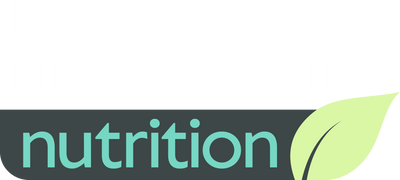Natural sources of collagen (and how to add them to your diet)
March 28, 2025
In this article we investigate some natural sources of collagen. Collagen has become a buzzword in the health and wellness community, and with good reason. As the most abundant protein in the human body, it acts as a crucial building block for skin, hair, joints, muscles, and more. But despite its importance, collagen production naturally declines as we age, leading to visible signs like wrinkles and less obvious issues such as joint pain and reduced muscle mass.

The good news? Your diet can play a significant role in supporting your body's collagen levels. By incorporating natural sources of collagen and collagen-boosting foods, you can help maintain vibrant skin, flexible joints, and stronger overall health. This post explores the best food sources of collagen, practical ways to enjoy them, and the lifestyle habits that make a difference.
Let's discover how you can take a natural and nourishing approach to keep collagen flowing!
What is collagen, and why does collagen matter?
Collagen is a structural protein that acts as the "glue" holding your body together. It’s found in connective tissues, including skin, tendons, cartilage, and bones. With over 80% of your skin comprised of collagen, it’s no surprise this protein plays a vital role in keeping your complexion smooth, firm, and youthful-looking. Beyond aesthetics, collagen also supports joint flexibility, improves digestion by strengthening the gut lining, and helps maintain overall physical strength.
However, from our mid-20s onwards, collagen levels start to decline by roughly 1% per year. Environmental factors like sun exposure, smoking, and high sugar intake can accelerate this process. This is why a balanced, collagen-supportive diet is so important. Luckily, there are many natural sources of collagen that nature gives us to replenish and boost collagen production through food!
Top natural resources of collagen-rich foods to include in your diet
When it comes to building collagen naturally, some foods are a direct source of natural sources of collagen, while others provide nutrients that encourage your body to produce its own. Here’s a list of must-have items for a collagen-rich diet:
1. Bone broth
A staple in any collagen-boosting diet, bone broth is packed with collagen because it’s made by simmering animal bones and connective tissues for hours or even days. This slow cooking process releases collagen, along with valuable amino acids like glycine and proline. Enjoy bone broth as a warm drink or use it as a base for soups and stews.
2. Chicken
Chicken is a well-known natural resource of collagen. If you’ve ever noticed the connective tissues when preparing chicken, those are high in collagen. Chicken skin, in particular, contains concentrated amounts. If you’re thinking about making a homemade soup, consider using chicken meat with skin for an extra boost!
3. Fish and shellfish
Fish, especially the skin, is another excellent natural source of collagen. Marine collagen (sourced from fish) is believed to be one of the most bioavailable forms, meaning it’s easier for your body to absorb. Varieties like salmon, mackerel, and sardines are great options. Don’t skip the skin when you cook fish; it’s where much of the collagen lies.
4. Eggs
Egg whites contain glycine and proline, key amino acids that support collagen production. While eggs don’t naturally contain collagen themselves, they supply the building blocks your body needs to synthesise it effectively.
5. Citrus fruits
Vitamin C is crucial for collagen synthesis, and citrus fruits like oranges, grapefruits, lemons, and limes deliver this in abundance. Pair your collagen-rich meals with a side of citrus fruits or a squeeze of lemon juice to aid your body’s ability to produce collagen.
6. Berries
Strawberries, raspberries, and blueberries bring more than just delicious flavour to your diet; they’re antioxidant powerhouses that protect collagen from breakdown. They also provide vitamin C to assist in collagen production.
7. Garlic
Thanks to its sulphur content, garlic supports collagen production while protecting your current collagen stores from degradation. Include it liberally in sauces, marinades, and savoury dishes for added health benefits.
8. Leafy greens
Spinach, kale, and other dark leafy greens are high in chlorophyll, which is said to increase collagen production. They’re also loaded with antioxidants that combat free radicals, helping to protect the collagen already in your body.
Simple recipes to boost collagen naturally
Making collagen-friendly meals doesn’t have to be complicated! Here are some easy recipes you can try to incorporate these nutritious foods into your day.
1. Collagen-packed bone broth soup
- Ingredients
- Method
2. Berry citrus smoothie
- Ingredients
- Method
3. Garlic lemon seared salmon
- Ingredients
- Method
Lifestyle tips to protect and boost collagen
Your diet is just one piece of the puzzle when it comes to maintaining collagen levels. Pair nutritious eating with these healthy lifestyle habits for the best results:
- Cut back on sugar: High sugar consumption damages collagen through a process called glycation. Opt for natural sweeteners like honey instead.
- Avoid smoking: Smoking reduces collagen production and breaks down existing collagen more rapidly.
- Use sunscreen: Protecting your skin from UV damage defends your collagen stores.
- Stay hydrated: Water keeps skin plump and supports the collagen structure. Aim for at least 8 glasses a day.
Glow from the inside out
Collagen is essential for your skin, joints, and overall vitality. By adding collagen-rich foods to your diet, you’re providing your body with the building blocks it needs to thrive. Foods like bone broth, chicken, leafy greens, and citrus fruits are simple, natural ways to support collagen production daily. Complement a healthy diet with smart lifestyle choices, and you’ll be well on your way to glowing health from within.
It’s time to take the first step toward a stronger, more radiant you. Why not start by trying one of the recipes above today?
Also in Health

Collagen is an effective joint pain supplement
March 28, 2025
Collagen—a protein naturally found in your body—may hold the key to protecting your joints, soothing pain, and promoting better mobility.
Sign up to get the latest on sales, new releases and more…




